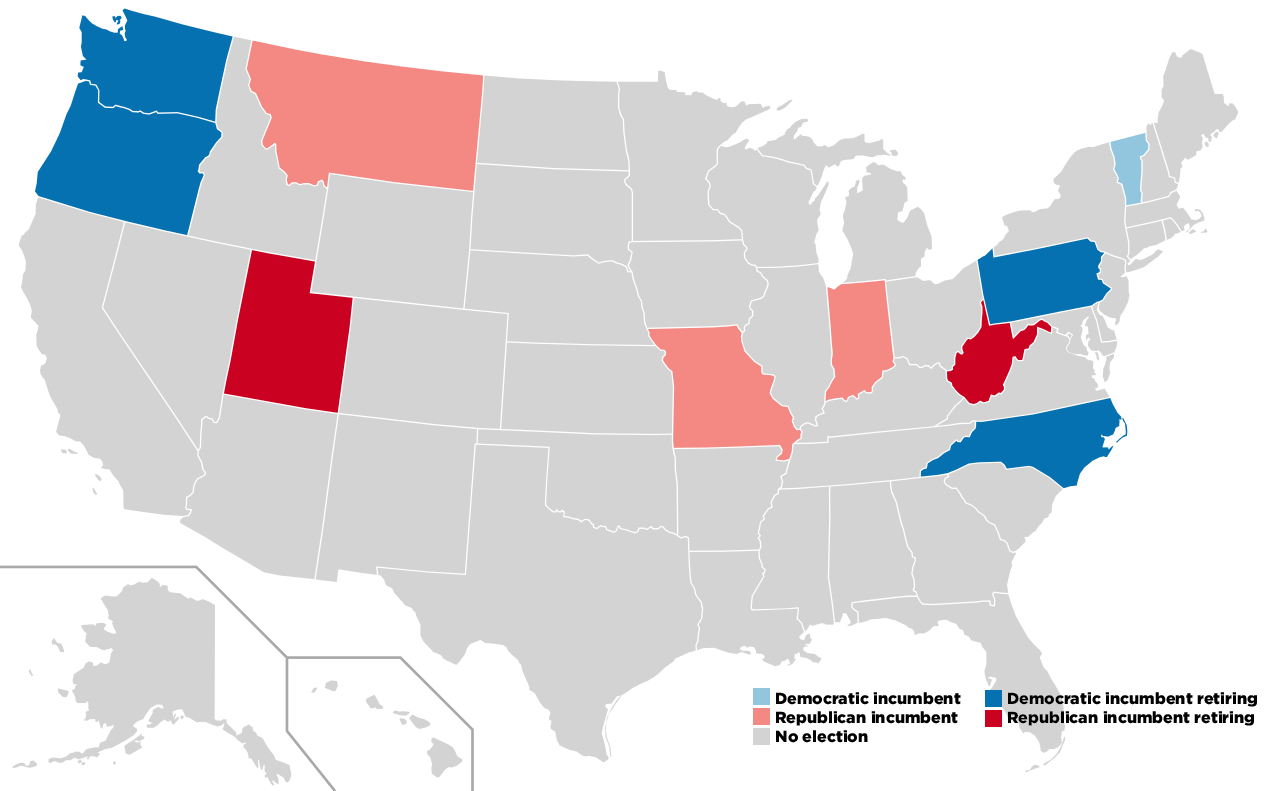On Nov. 5, 2024, 10 states will elect their next Attorney General. These elections coincide with the presidential election, Senate and House of Representatives elections, and various other state and local contests. The current partisan composition of these attorney general positions comprises 5 Democrats and 5 Republicans.


(Wikipedia)
Election predictions suggest varying degrees of competitiveness in different states, ranging from “safe” seats to “toss-up” races. Notably, several key AG races are shaping up to be particularly interesting, with Indiana’s AG race shifting from “Safe Republican” to “Lean Republican,” and North Carolina’s AG contest being labeled a “toss-up.”
In Indiana, incumbent Attorney General Todd Rokita, first elected in 2020, faces competition from Destiny Wells, a Democratic Afghanistan War veteran and attorney. Meanwhile, in Missouri, appointed AG Andrew Bailey seeks election to a full term, contending with Republican Will Scharf, a former assistant U.S. Attorney. Montana’s AG race sees incumbent Austin Knudsen, elected in 2020, defending his position against Democratic attorney Ben Alke.
North Carolina’s AG race gains attention as incumbent Josh Stein steps down to run for governor, leaving the field open for two former state lawmakers and current Congressmen Dan Bishop (Republican) and Democrat Jeff Jackson. Oregon’s retiring AG Ellen Rosenblum prompts a competitive race with Democratic House Speaker Dan Rayfield and Republican Will Lathrop vying for the seat.
In Pennsylvania, appointed Attorney General Michelle Henry announced she would not run in 2024, drawing a crowded field of Democratic candidates, including former Auditor General Eugene DePasquale, Joe Khan, a former Bucks County Solicitor, former Philadelphia chief public defender Keir Bradford-Grey, Delaware County District Attorney Jack Stollsteimer, and State Rep. Jared Solomon from Northeast Philadelphia, while Republicans like York County District Attorney David Sunday and Republican State Representaitve Craig Williams compete for the nomination.
Utah’s AG race sees a notable shift as incumbent Sean Reyes opts not to seek re-election, opening the field for candidates like Derek Brown, former chair of the Utah Republican Party and a former state legislator. Another candidate Trent Christensen is seeking the nomination and is currently applying for admission to the Utah bar. Two others on the Republican side, Rachel Terry and Frank Mylar are hoping to make the primary ballot once Republicans gather at their state convention on April 27th. To qualify, they will need to win at least 40% of votes of Republican delegates.
Vermont’s AG Charity Clark faces the decision of whether to seek re-election after her 2022 win, while in Washington, incumbent Bob Ferguson’s bid for governor creates an open contest with candidates like former U.S. Attorney Nick Brown and state senator Manka Dhingra.
Lastly, West Virginia’s AG race, with incumbent Patrick Morrisey running for governor, features Republicans Mike Stuart and state auditor JB McCuskey among the contenders. Wheeling attorney Teresa Toriseva seeks the Democratic nomination.
These AG races, along with those for Secretary of State, underscore the significance of state-level elections in shaping policy outcomes and electoral processes across the United States.
The shifting and complex dynamics of 2024 will undoubtedly influence the broader political landscape for years to come. Now is the time to review your company’s plan for addressing the many issues facing state and federal leaders. Our team has a proven track record of designing comprehensive, creative and nontraditional engagement strategies that help your business thrive in uncertain times.




